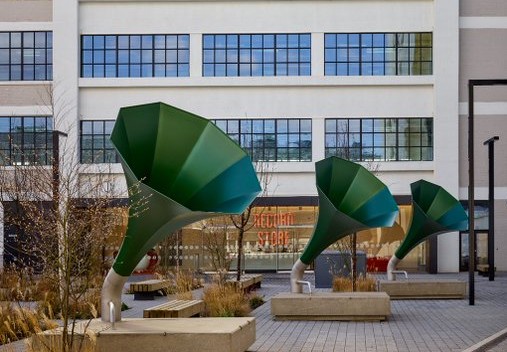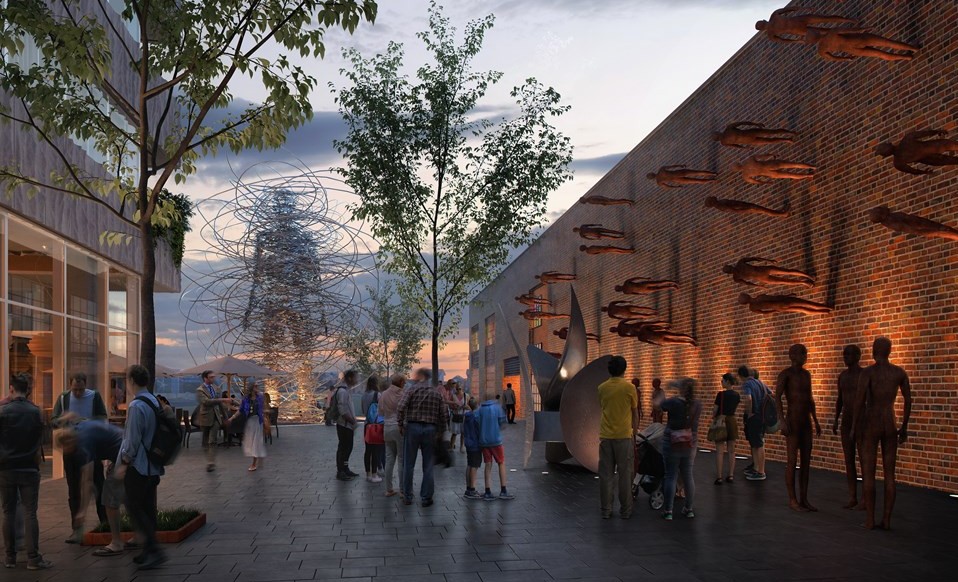Post
JOURNAL 2021 | Outer Spaces: the opportunities of outer London
2 Aug 2021
You can find out more about this year's Journal here. Or join the Society for just £10 and get receive a free copy.
Richard Upton, chief executive of U+I, argues that while London’s centre will survive, it is the city’s outer reaches that will provide much opportunity too
Walking the streets of central London during the last weeks and months has been a strange experience. Places so familiar, devoid of their bustle; the crowds gone; shops and restaurants closed.
In Victoria, where U+I is based, we have seen and felt the impact of the pandemic on central London and at times it’s been hard to comprehend. It is all too easy to get sucked into a vortex of doom and gloom, so let’s focus on the future and ask what the opportunities are for London as a result of the pandemic. How will the shape of our city change?
Certainly, enormous damage has been wrought on urban centres across the country – and in London these are some of the UK’s most famous and well- loved retail and leisure destinations. It isn’t only the impact of the lockdowns that has caused damage, but also the ongoing absence in between of the critical mass of office workers that is the lifeblood of many central London businesses.
Even so, I have no doubt central London will recover, the ‘death of the office’ narrative that drives a lot of the doom-mongering around the future of our great city has been overdone. The ‘future of work’ is not this urgent and necessary experiment in remote working that we have been living through. It is something smarter, hybrid and more agile that will keep an office at its heart.
At U+I, for example, we’re looking for a new home. Something smaller that is designed to cultivate collaborative working rather than the usual rows of desks, a space that goes above and beyond usual office expectations. Remote working – at home or in shared workspace locations – will be for focused work and the office for the buzz of collaboration, creativity and innovation.
Importantly, we will still have an office in central London – we are just rethinking how we will use it. We think this will be the case for most businesses: demand for offices in central locations will remain, but occupiers will look at using the space differently, with a premium placed on well-designed workspace with great public realm, parks and amenities, as well as high levels of sustainability, wellbeing and connectivity.
Where we expect to see more wide-ranging change is in the outer London locations that have been a little less feted in the past. In 2020, it was already clear that for all the talk of retail dying and high streets on their last legs, suburban and fringe locations in London were faring far better than places in the centre.
In many of these locations, places like Bromley and Hayes where we have large- scale regeneration schemes, footfall rebounded quickly after the first lockdown, as all those commuters now working from home rediscovered their local area.
We expect this again to be the case again in 2021 as restrictions lift and more flexible and hybrid working arrangements endure. The ‘shop local’ mantra that has helped many smaller businesses through the pandemic is a great positive, which we think will help places to recover.
Ultimately, we still believe in the local high street as the lifeblood of a community: we just need to rethink what it is for. That means thinking less about the creation of retail destinations, more the curation of places for people to gather. Shops, yes, but smaller, more local, more interesting, more experiential, sitting alongside hospitality, leisure, workspace and homes, as well as much-improved public realm. The future of London as a city post-pandemic must be seen through this prism of creating more genuinely mixed-use places.
But to do that you do need to be bold and creative. In Hayes, we’re creating a whole new neighbourhood based on these principles, called The Old Vinyl Factory – a seven hectare regeneration site that is now close to completion. Here we have poured our energies into curating a retail and leisure offer that has a balanced mix – some national operators but also smaller, independent businesses. These sit alongside homes, workspace and a hugely successful innovation hub, as well as community facilities, education providers and carefully considered public realm.
What we find is that successful places need to have a sense of identity or character – that kind of magic alchemy that just makes a place ‘right’; a place where people want to live, work, visit, and spend their time (and money). And part of that alchemy is having a unique and interesting leisure, hospitality and retail offer. We have seen the same thing happen in Bromley: a virtuous circle is sparked that can kickstart the revival of a High Street, a neighbourhood or a whole town centre.
Getting it right is not easy. But we believe it is the only way you can deliver genuine regeneration that has a tangible and sustainable impact on local economies, while also being commercially successful. And that is what London will need to recover: imagination, hard work and close working between the private sector and local authorities, to help our city emerge from the grip of this pandemic. A city revived, with a strong vibrant centre, but equally vigorous satellites; a more balanced, hybrid, and sustainable city, fit for its global future.
Richard Upton is chief executive with U+I, a property developer and investor focused on regeneration. Richard is driven by a desire to build a company that inspires people to deliver great places that are authentic, inclusive and exceptional.

